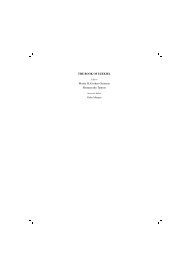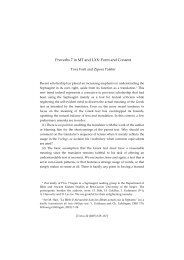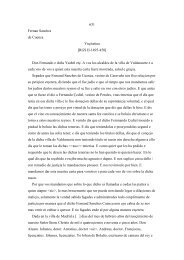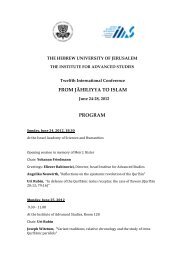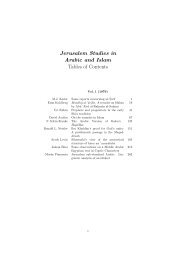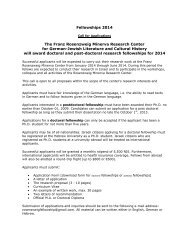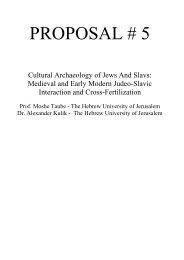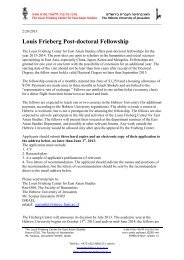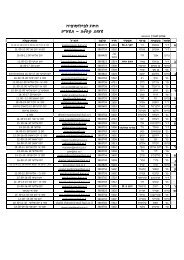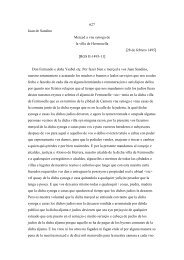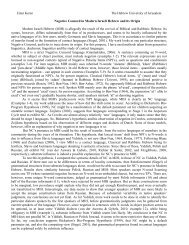Baber Johansen
Baber Johansen
Baber Johansen
Create successful ePaper yourself
Turn your PDF publications into a flip-book with our unique Google optimized e-Paper software.
38<br />
God. The actor’s contingent decisions based on free choice, intent and<br />
purpose form the object of the legal norms. The classifications of time<br />
and space into sacred and profane and the systems of classification that<br />
range cultic acts into hierarchies according to the degree of their<br />
obligatory character enable the jurists to construe the regulation of the<br />
cult as a legal system. Under all these aspects, the legal concept of the<br />
cultic act shows striking similarities with the concept of the legal act as<br />
used in other fields of the law. But there are even more striking<br />
dissimilarities: the most important of them being the fact that cultic acts<br />
constitute relations between the believers and God and that they are not<br />
subject to the judiciary’s control. The political and judicial authorities<br />
only enter the field of the cult if individuals deny the existence or the<br />
validity of cultic obligations or refuse to practice them over long periods.<br />
The fact that non-Muslims cannot perform a valid cultic act is even more<br />
important. It shows that non-Muslims are not integrated into this field of<br />
the law. They are excluded from it. It is a field of law that is reserved for<br />
Muslim<br />
VIII. The World of Human Transactions<br />
The cult regulates the believer’s obligations towards God. By contrast,<br />
the obligations between individual persons—or between individual<br />
persons and the political and judicial authorities—are regulated through<br />
the norms governing the field of "legal transactions" (muÝÁmalÁt). In this<br />
field, the legal subject does not have to be a Muslim, but a free person, in<br />
possession of her mental capacity. The rules that regulate this field apply<br />
to the political, not the religious, community of Islam. Contrary to the<br />
information provided by many manuals on Muslim law, these rules<br />
address non-Muslim subjects of Muslim rulers whether they belong to<br />
polytheistic or monotheistic religions. According to the Mālikī and the<br />
Íanafī schools of Sunnī law, "polytheists and fire worshippers" are<br />
admitted as subjects to the Muslim political authorities. The fiqh rules of<br />
legal transactions, therefore, apply to them. It is only from the ninth<br />
century on that the ShāfiÝīs and the Íanbalīs restrict the membership in



